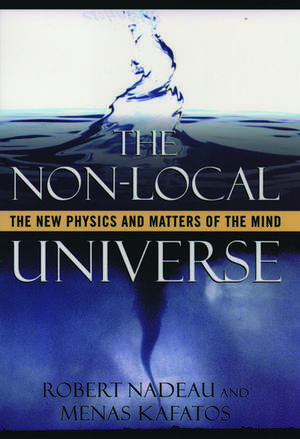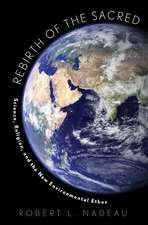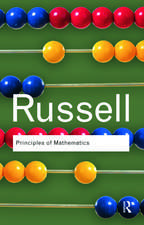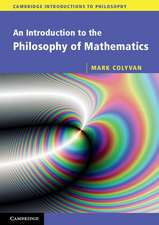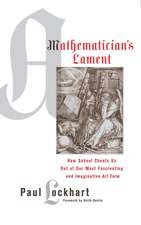The Non-Local Universe: The New Physics and Matters of the Mind
Robert Nadeau, Menas Kafatosen Limba Engleză Paperback – 2 aug 2001
Preț: 127.67 lei
Preț vechi: 135.38 lei
-6% Nou
Puncte Express: 192
Preț estimativ în valută:
24.43€ • 26.53$ • 20.52£
24.43€ • 26.53$ • 20.52£
Carte tipărită la comandă
Livrare economică 11-17 aprilie
Preluare comenzi: 021 569.72.76
Specificații
ISBN-13: 9780195144086
ISBN-10: 0195144082
Pagini: 256
Ilustrații: 16 halftones, 6 line illustrations
Dimensiuni: 140 x 216 x 20 mm
Greutate: 0.34 kg
Ediția:Revised
Editura: Oxford University Press
Colecția OUP USA
Locul publicării:New York, United States
ISBN-10: 0195144082
Pagini: 256
Ilustrații: 16 halftones, 6 line illustrations
Dimensiuni: 140 x 216 x 20 mm
Greutate: 0.34 kg
Ediția:Revised
Editura: Oxford University Press
Colecția OUP USA
Locul publicării:New York, United States
Recenzii
"Nadeau and Kafatos supply plenty of food for thought: the apparently recondite concept of non-locality, they suggest, has consequences everywhere."--Publisher's Weekly
Notă biografică
Robert Nadeau, a historian of science, has written seven books on the implications of advances in science and technology. Menas Kafatos, a physicist, has published numerous books and articles on computational science, astrophysics, earth systems science, general relativity and the foundations of quantum theory. They are both professors at George Mason University, in Fairfax, Virginia.
